
Entry control optical speed turnstile offers both single- and bi-directional entry control
Entry control optical speed turnstile JDSG-22 is constructed to operate smoothly, quickly, and dependably while maintaining the ideal balance between the equipment's stability and the aesthetic requirements of the surrounding interior space. It can precisely track the passing of a single authorized user using advanced detection technology, effectively preventing fraudulent or illegal entry. The optical speed turnstile gate is frequently used in premium corporate lobbies, high-rise building entrances, opulent apartment complexes, universities, and other locations where autonomous entry and aesthetics are vital because of the distinctive design and quick throughput.
The turnstile security gate uses a servo motor and an exact positional system, giving it benefits like high stability, high safety, extended service life, precise detection, quick, steady, and silent operation. For increased security and less exposure to air contaminants, this modern speed gate security turnstile has extra-tall glass barriers and cutting-edge optical sensors, and its body is made of stainless steel, glass on the sides, and red and green indication lights. In addition, the speed gate optical turnstile can thoroughly protect pedestrian safety thanks to triple anti-clamping technologies including infrared anti-clamping, mechanical anti-clamping, and anti-collision via advanced electric current sensing.
As an efficient crowd control solution with the combination of a high bidirectional flow of passage with high levels of security, optical speed turnstile entry control JDSG-22 effectively organizes passageways with increased requirements for design and comfort of passage. In addition, the speed barrier turnstile provides single-directional and bi-directional entry control and automatically releases the passage for free access in case of power failure or emergency.
In order to meet the needs of various projects, Jayda Company, a leading speed turnstile manufacturer with strong R & D capabilities, is working hard to produce updated high security turnstiles. We have already exported our products to more than 50 countries and regions. If you need help, please email us at luke@jaydagate.com.

Entry Control Optical Speed Turnstile Features
1. Wider passages and higher obstacles
2. Silent and smooth in operation
3. Accurate tailgating detection
4. Minimal footprint for maximum throughput
5. Precision-controlled movement of obstacles and detection of all obstructions
6. A stylish and flexible design able to virtually blend infinite aesthetics within architectural interior needs
7. When combined with a fire alarm system and a fire alarm occurs, obstacles automatically open to free the passage.
8. Elector-mechanical locking to withstand forced entry attempts
9. Wrong-way detection prevents the gate from opening when a user approaches from the secure side and intrusion detection prevents doors from opening onto users in the safety zone
10. Smooth integration of proximity, magnetic card readers, biometric scanners, and other user authentication systems
Entry Control Optical Speed Turnstile Applications
Corporate lobbies
Data center
Stadiums
Commercial building
Metro stations
Parking garages
Entry Control Optical Speed Turnstile Parameters
| Housing Material |
#304 stainless sheet |
| Dimension |
1400 x 120 x 980mm |
| Power Supply |
AC110V~240V, 50/60hZ |
| Channel Width |
600~900mm |
| Drive Motor |
DC 24V brushless motor or servo motor |
| Pass Speed |
35 ~45 persons per minute |
| Input Interface |
Dry contact signal or +12V level signal or DC12V pulse signal |
| Rotating Direction |
Bi-directional |
| Communication interface |
RS485 |
| Gate open when power failure |
Yes |
| Open Time |
0.2 second |
| Life Cycle |
5 million times |
| Working Temperature |
-30°C~+70°C |
| Working Environments |
Indoor, outdoor (with shelter) |
The Dimensions

The Design

The System Diagram

Project Cases
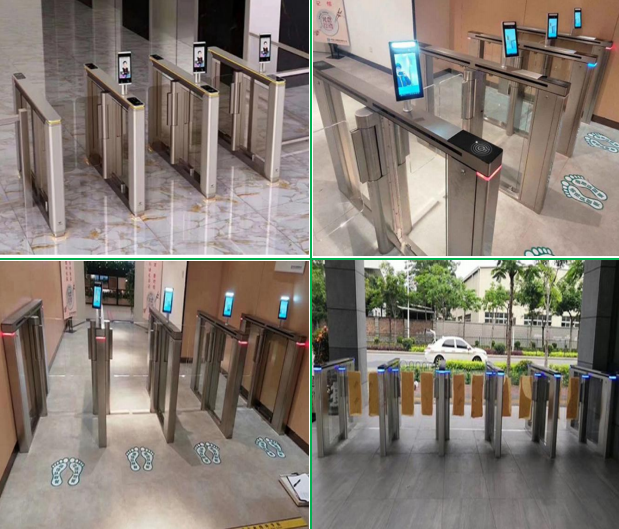
FAQ
What distinguishes entry control optical speed turnstiles from swing gate turnstiles?
Chasis design: entry control optical speed turnstiles have a sleek, contemporary chassis that ranges in width from 100 to 180 millimeters and in length from 1400 to 1500 millimeters. The swingarm is constructed of pendulum plexiglass or tempered glass. While swing gate turnstiles have bigger chassis—their typical dimensions are 280 mm in width by 420 mm in length—the swing arms are constructed of pendulum plexiglass glass or #304 steel sheet.
Traffic flow: Compared to swing turnstile gates, entry control speed optical turnstiles open in 0.3 seconds per time, can pass 30 to 45 people per minute, and can be adjusted for speed. Speed turnstiles have a memory feature that allows users to swipe cards repeatedly and access them sequentially. While swing optical turnstiles open more slowly and move through traffic at a rate of 20 to 25 people per minute, they lack memory functions, therefore only one user is permitted to pass at a time.
Drive Way: The optical speed entry control turnstile movement uses a clutch and an encoder to combine a directly driven method with a drive. The swing arm can get the maximum amount of the motor’s effective power due to the high motor transmission efficiency, or the high transmission coefficient. When the swing arm experiences an abrupt external force that causes it to deviate from the zero position, the solenoid valve shuts the gate to stop the force and the encoder directs the swing arm to return to the zero position.
The clutch will immediately lock the gate in the event of unlawful entry. The sliding friction, four wheels, and four grooves principle is used in the swing optical turnstile movement, which has a reduced transmission efficiency. The groove and wheel are 90 degrees apart. The grooved wheel will side-switch and rub once with each swing of the swing arm. A fixed mechanism also positions the placement. If the anti-collision device is not placed, the external force will immediately strike the movement or swing arm in the event of an impact, causing the swing arm to deviate from the middle zero position and preventing the two sides from being aligned or synchronized. In the worst-case scenario, the swing arm will bend due to improper movement. Illegal entry cannot be locked; it can only sound an alarm.
Limit Way: Swing gate optical turnstiles, which have huge contact surfaces and imprecise limits, limit access by using proximity switches or optocoupler signals. Encoders are used by entry control optical speed turnstiles to limit the position, which can be precise to 1°.
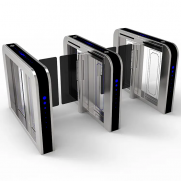 Speed Barrier Turnstile JDSG-30
Speed Barrier Turnstile JDSG-30
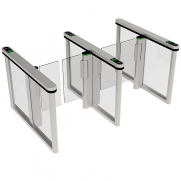 Optical Speed Gate JDSG-29
Optical Speed Gate JDSG-29
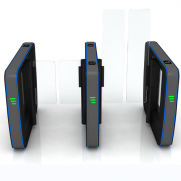 Speed Turnstile Access Control JDSG-28
Speed Turnstile Access Control JDSG-28
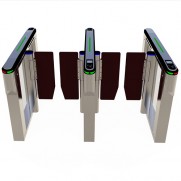 Speed Gate Turnstile JDSG-27
Speed Gate Turnstile JDSG-27







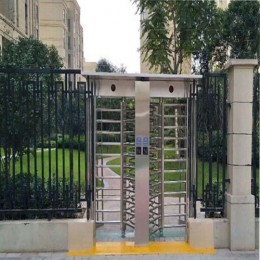
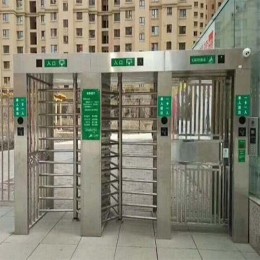

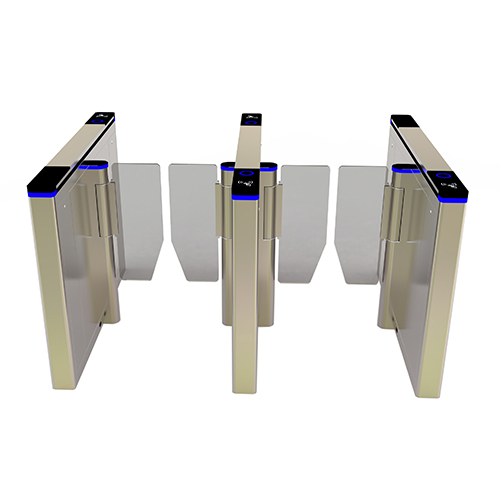

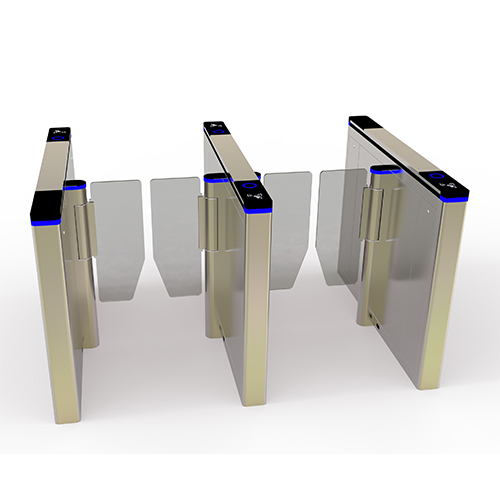
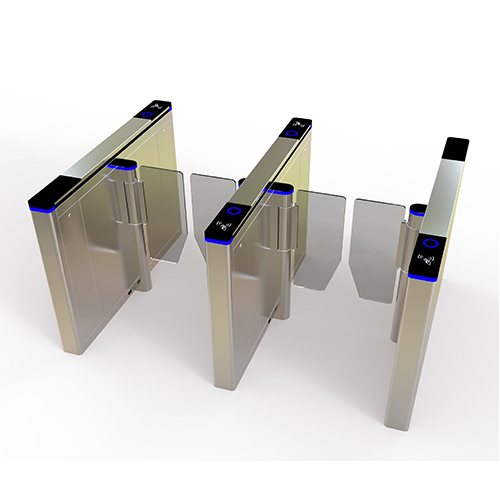
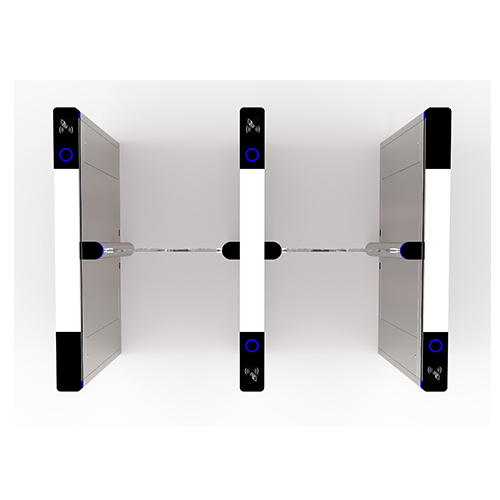







Please leave a message if you are interested in this model